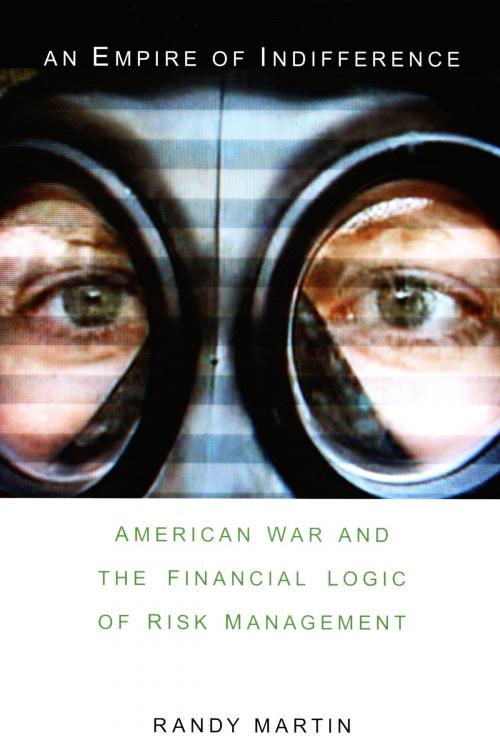An Empire of Indifference
American War and the Financial Logic of Risk Management
Nonfiction, Social & Cultural Studies, Political Science, Politics, History & Theory| Author: | Randy Martin, Andrew Ross | ISBN: | 9780822389804 |
| Publisher: | Duke University Press | Publication: | March 14, 2007 |
| Imprint: | Duke University Press Books | Language: | English |
| Author: | Randy Martin, Andrew Ross |
| ISBN: | 9780822389804 |
| Publisher: | Duke University Press |
| Publication: | March 14, 2007 |
| Imprint: | Duke University Press Books |
| Language: | English |
In this significant Marxist critique of contemporary American imperialism, the cultural theorist Randy Martin argues that a finance-based logic of risk control has come to dominate Americans’ everyday lives as well as U.S. foreign and domestic policy. Risk management—the ability to adjust for risk and to leverage it for financial gain—is the key to personal finance as well as the defining element of the massive global market in financial derivatives. The United States wages its amorphous war on terror by leveraging particular interventions (such as Iraq) to much larger ends (winning the war on terror) and by deploying small numbers of troops and targeted weaponry to achieve broad effects. Both in global financial markets and on far-flung battlegrounds, the multiplier effects are difficult to foresee or control.
Drawing on theorists including Michel Foucault, Giorgio Agamben, Michael Hardt, Antonio Negri, and Achille Mbembe, Martin illuminates a frightening financial logic that must be understood in order to be countered. Martin maintains that finance divides the world between those able to avail themselves of wealth opportunities through risk taking (investors) and those who cannot do so, who are considered “at risk.” He contends that modern-day American imperialism differs from previous models of imperialism, in which the occupiers engaged with the occupied to “civilize” them, siphon off wealth, or both. American imperialism, by contrast, is an empire of indifference: a massive flight from engagement. The United States urges an embrace of risk and self-management on the occupied and then ignores or dispossesses those who cannot make the grade.
In this significant Marxist critique of contemporary American imperialism, the cultural theorist Randy Martin argues that a finance-based logic of risk control has come to dominate Americans’ everyday lives as well as U.S. foreign and domestic policy. Risk management—the ability to adjust for risk and to leverage it for financial gain—is the key to personal finance as well as the defining element of the massive global market in financial derivatives. The United States wages its amorphous war on terror by leveraging particular interventions (such as Iraq) to much larger ends (winning the war on terror) and by deploying small numbers of troops and targeted weaponry to achieve broad effects. Both in global financial markets and on far-flung battlegrounds, the multiplier effects are difficult to foresee or control.
Drawing on theorists including Michel Foucault, Giorgio Agamben, Michael Hardt, Antonio Negri, and Achille Mbembe, Martin illuminates a frightening financial logic that must be understood in order to be countered. Martin maintains that finance divides the world between those able to avail themselves of wealth opportunities through risk taking (investors) and those who cannot do so, who are considered “at risk.” He contends that modern-day American imperialism differs from previous models of imperialism, in which the occupiers engaged with the occupied to “civilize” them, siphon off wealth, or both. American imperialism, by contrast, is an empire of indifference: a massive flight from engagement. The United States urges an embrace of risk and self-management on the occupied and then ignores or dispossesses those who cannot make the grade.















